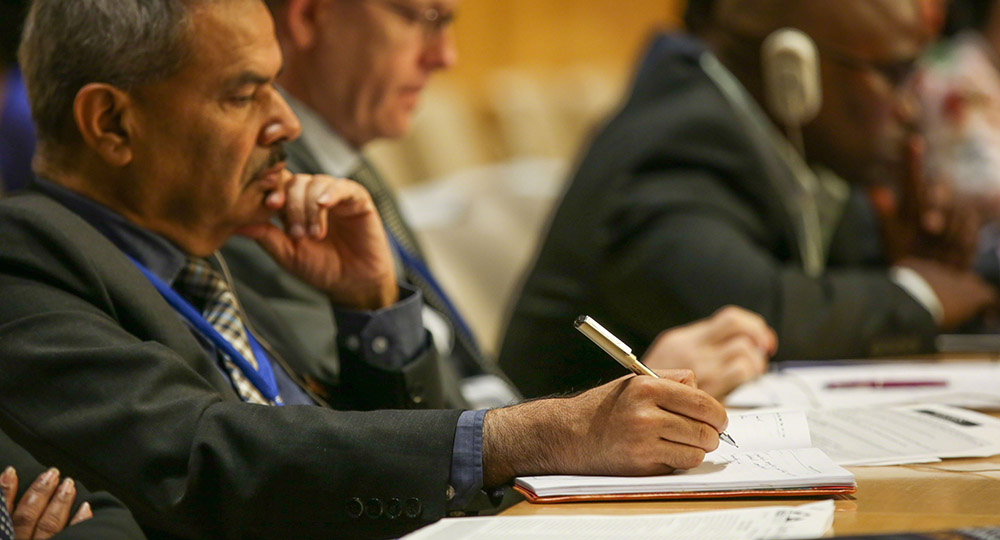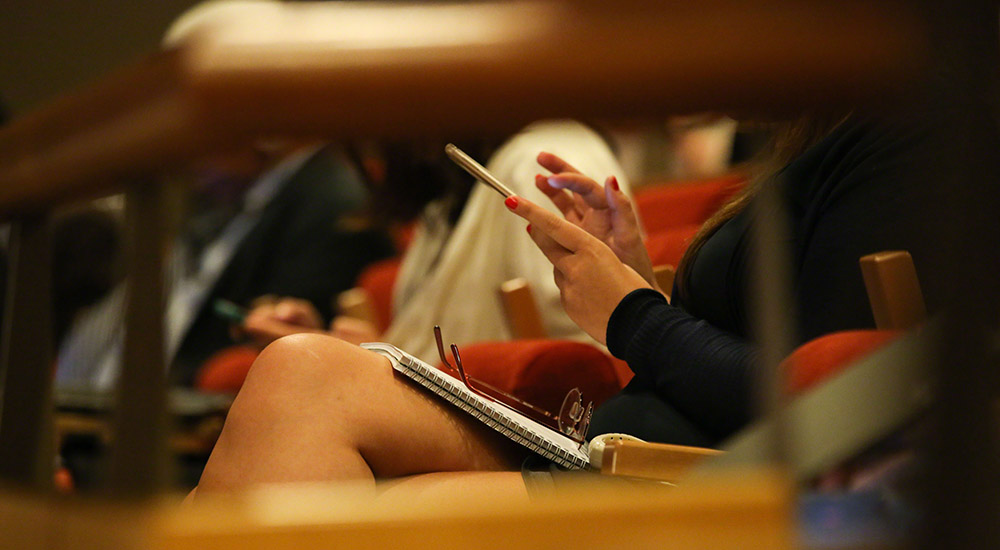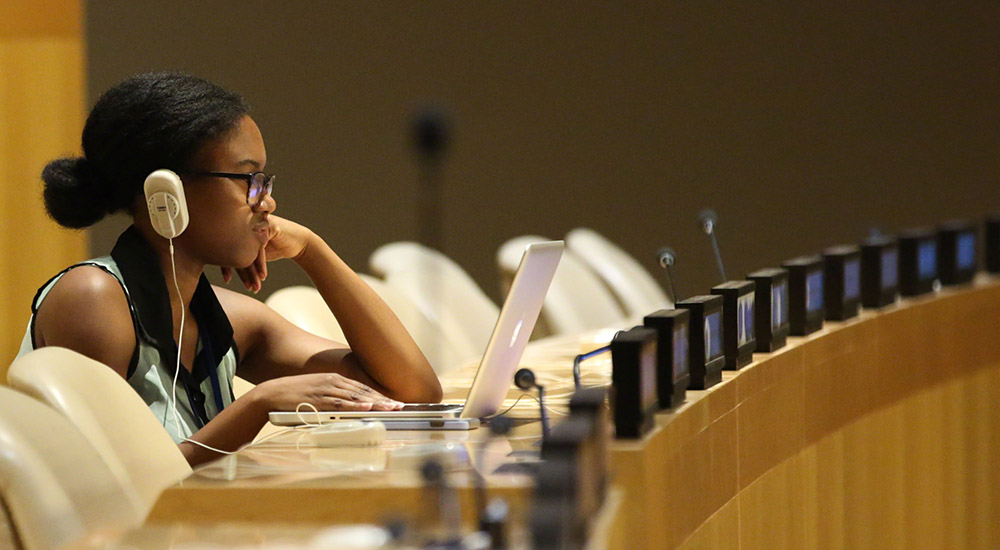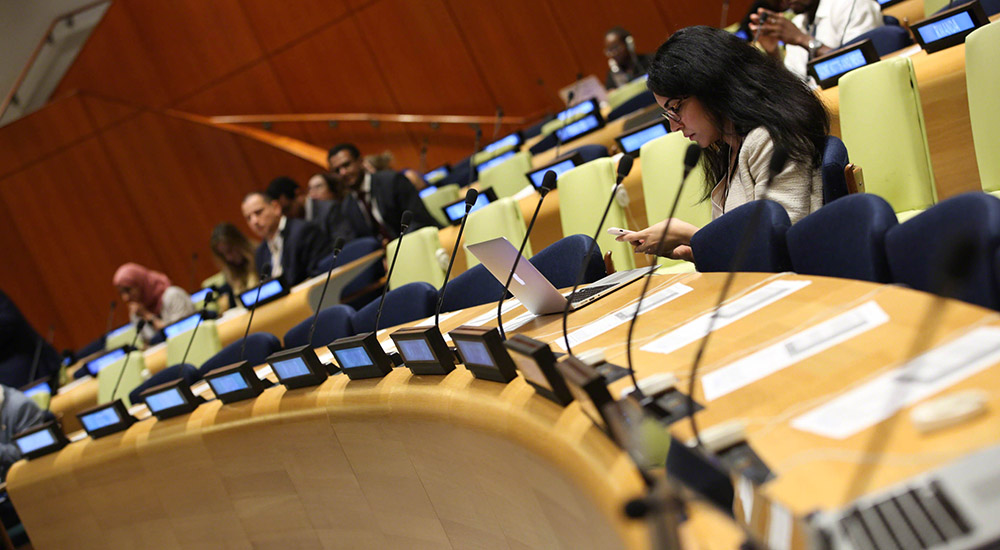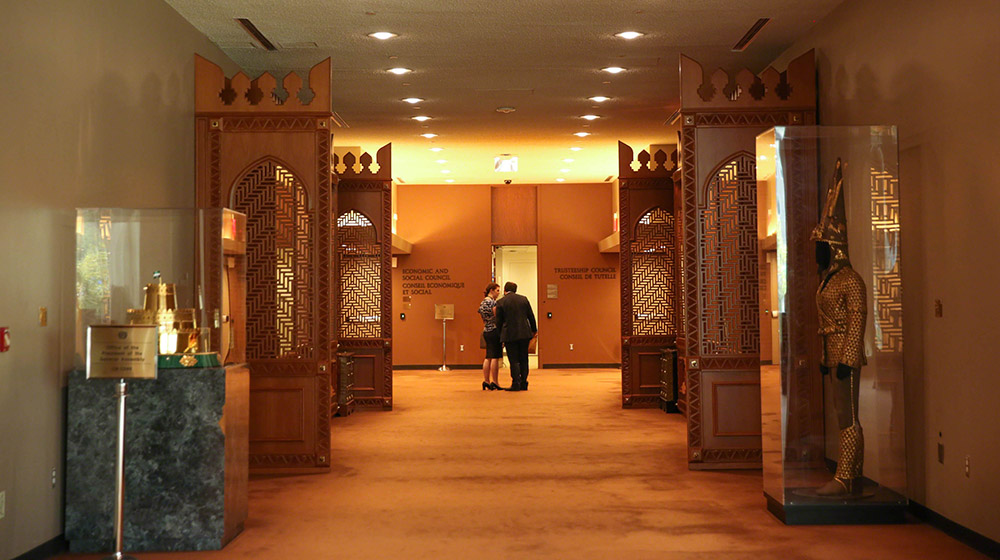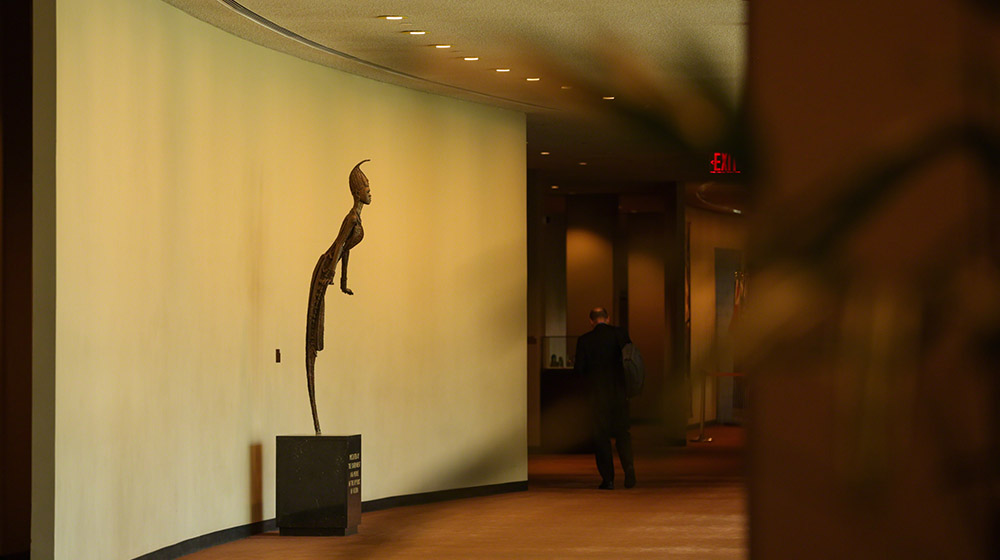Highlights for Friday, 19 July 2019
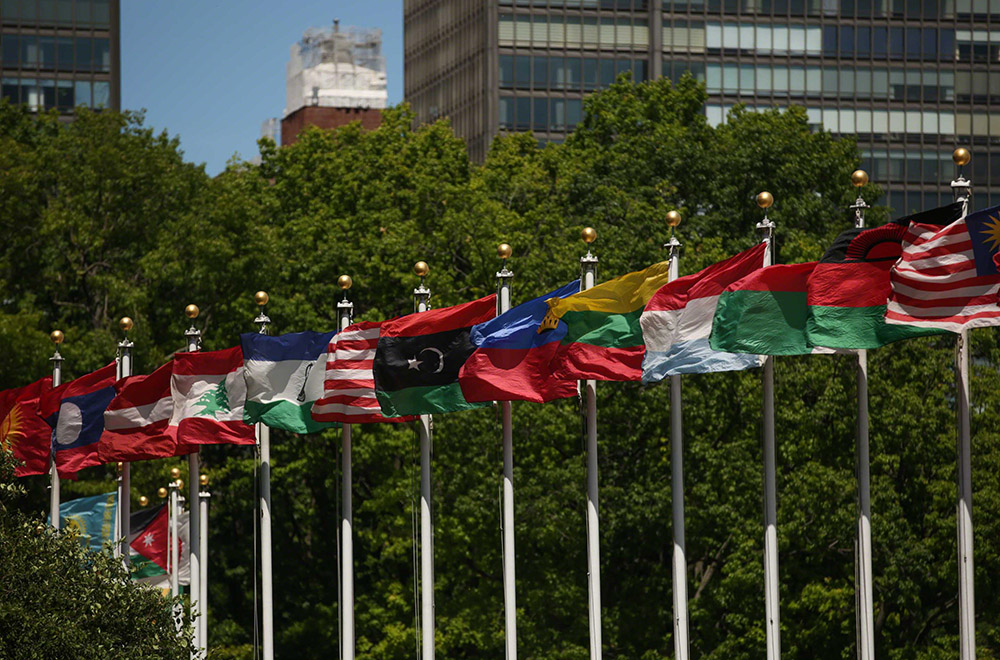
Flags fly outside UN Headquarters as the High-Level Segment of the ECOSOC 2019 concludes.
 The High-level Segment of the Economic and Social Council (ECOSOC) met on Friday to discuss visions and projections for the future of the Sustainable Development Goals (SDGs), and long-term trends and scenarios.Liu Zhenmin, Under-Secretary-General for the UN Department of Economic and Social Affairs (UN DESA), presented mega-trends from the summary of the Sustainable Development Outlook 2019 which will be launched in September 2019, highlighting that:
The High-level Segment of the Economic and Social Council (ECOSOC) met on Friday to discuss visions and projections for the future of the Sustainable Development Goals (SDGs), and long-term trends and scenarios.Liu Zhenmin, Under-Secretary-General for the UN Department of Economic and Social Affairs (UN DESA), presented mega-trends from the summary of the Sustainable Development Outlook 2019 which will be launched in September 2019, highlighting that:
implementation of the SDGs is made more challenging by lower GDP growth, 1% below the growth rate during the period of the Millennium Development Goals (2000-2015), and the looming risk of sudden deterioration of financial conditions is a further risk; and
global population is projected to reach 8.5 billion in 2030, and while this can present a demographic dividend for developing countries with a young workforce, nearly 1.8 million are projected to face chronic unemployment risk and remain outside the workforce.
Cristián Samper, Wildlife Conservation Society, called for 30% of ecosystems to be set aside by 2030 and for restoration of degraded areas. He said 30% of the solutions for climate change can be nature-based, but are overlooked in most national determined contributions (NDCs) under the Paris Agreement.In the panel discussion on visions and projections for the future, panelists highlighted: education and continuous learning as key to unlocking progress in the 2030 Agenda; peace, justice, and strong institutions as a cross-cutting goal; deep decarbonization and a digital revolution among focus areas for pathways to transformational change; healthy competition between countries to accelerate implementation; and the need for the 2019 September Summits to speak to one another.In the session on long-term trends and scenarios, participants drew attention to decision-making and SDG implementation at a time of uncertainty regarding solutions, such as the transformational benefits or potential dangers of new technologies. Panelists discussed the key role of equality in unlocking the potential of the other Goals; the multi-dimensional nature of inequality; the role of diverging demographic trends in driving inequalities; the vicious cycle created by long entrenched inequalities and denial of human rights; the importance of transparency, predictability, and accountability, especially in national budgets; access to technology and capacity to all countries and all citizens; the potential of climate change to exacerbate inequalities, and the need for just transitions; and the need for all voices to be heard while drafting policies. In closing remarks, Liu said progress towards the SDGs is slow; the lack of data hinders progress in reaching those furthest behind; and stakeholder participation is essential not to leave anyone behind. He noted that the high-level Summits in September 2019 will be an opportunity to share these messages.ECOSOC President Inga Rhonda King said the efforts invested in HLPF’s first cycle will lead to the doubling of efforts for SDG implementation, and an integrated approach that includes people in decision-making is key to ensure no one is left behind. She summarized several emerging mega-trends discussed at the ECOSOC High-level Segment, and concluded that the ECOSOC and HLPF are providing a platform to nurture a discussion on these issues.The meeting was gaveled to a close at 5:35 pm.
IISD Reporting Services, through its ENB Meeting Coverage, provided daily web coverage and daily reports from HLPF 2019. In addition, IISD Reporting Services has published a summary and analysis report from the meeting, which is now available in HTML and PDF.
Photos by IISD/ENB | Kiara Worth
For photo reprint permissions, please follow instructions at our Attribution Regulations for Meeting Photo Usage Page.
Where Are We heading? Visions and Projections for the Future of the SDGs
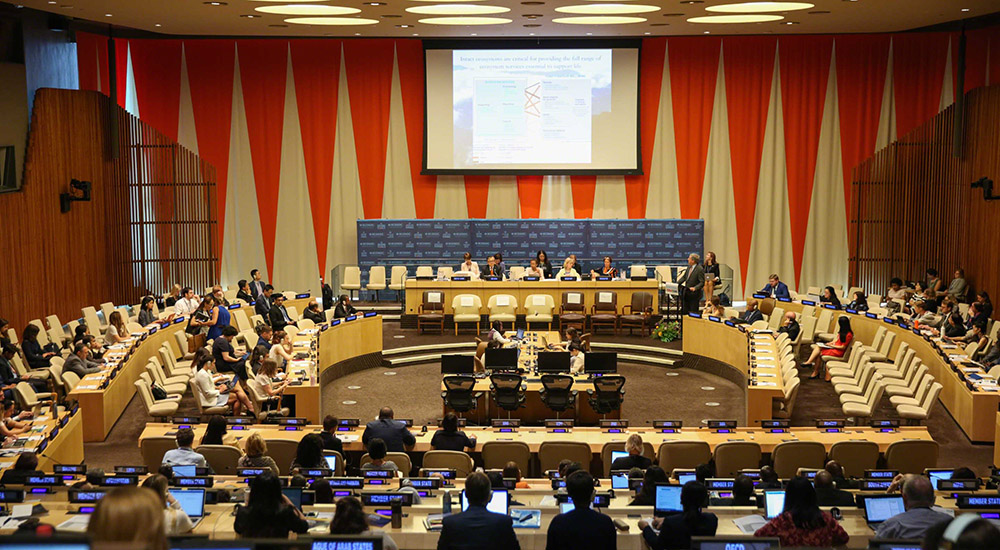
Delegates gather in the ECOSOC Chamber for the High-Level Segment of the ECOSOC.
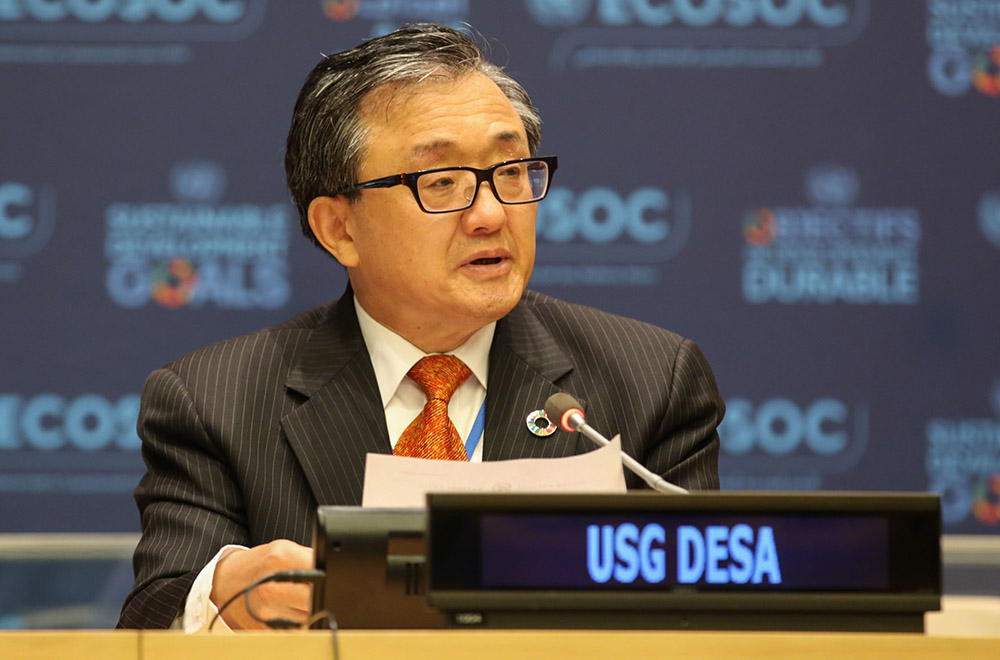
Liu Zhenmin, UN Under-Secretary-General, Economic and Social Affairs
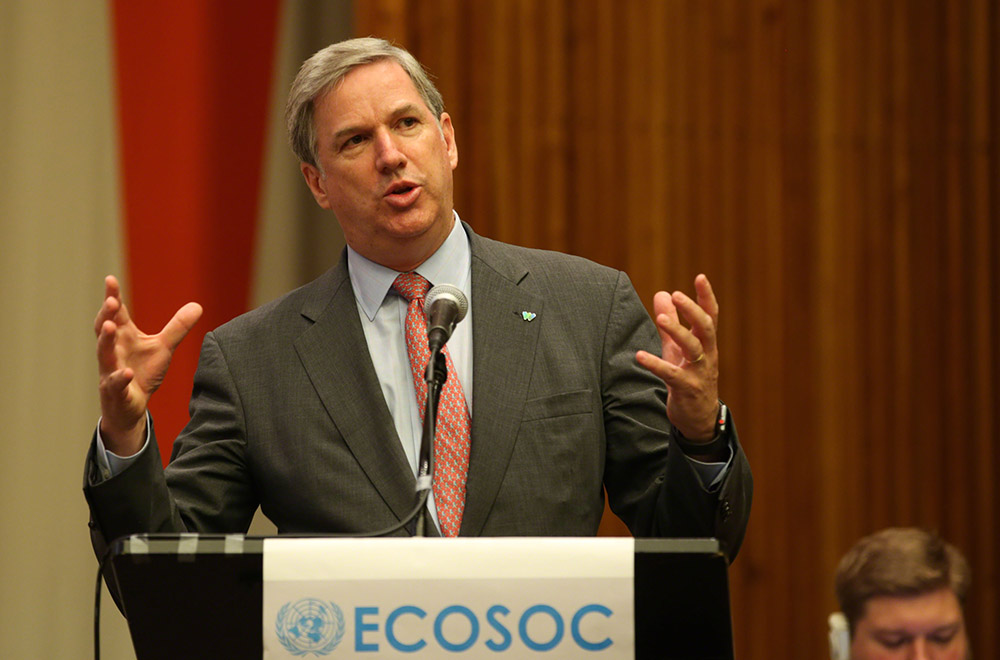
Cristián Samper, President and CEO, Wildlife Conservation Society
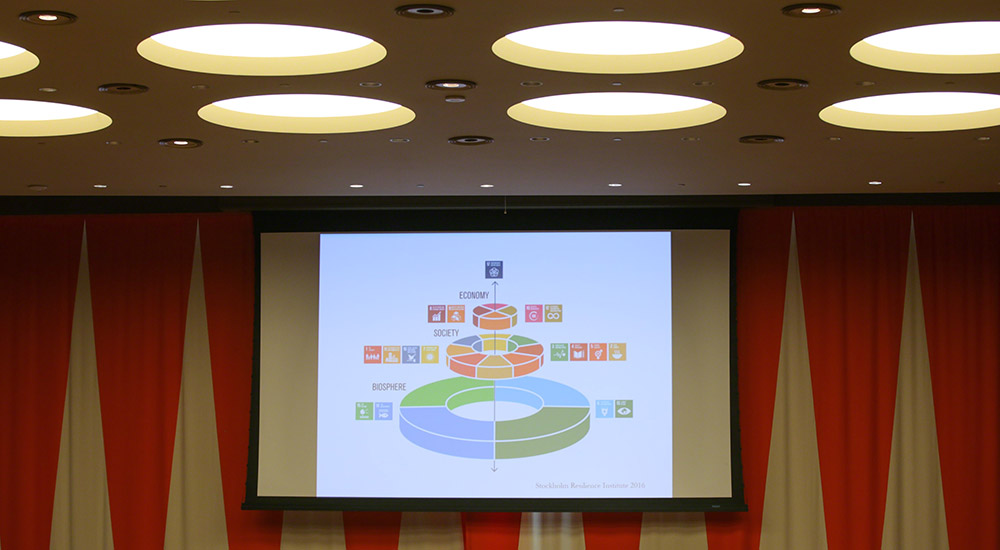
During his presentation, Cristián Samper, President and CEO, Wildlife Conservation Society, demonstrates that without a healthy biosphere, there will be no foundation for the social and economic development needed on the planet.
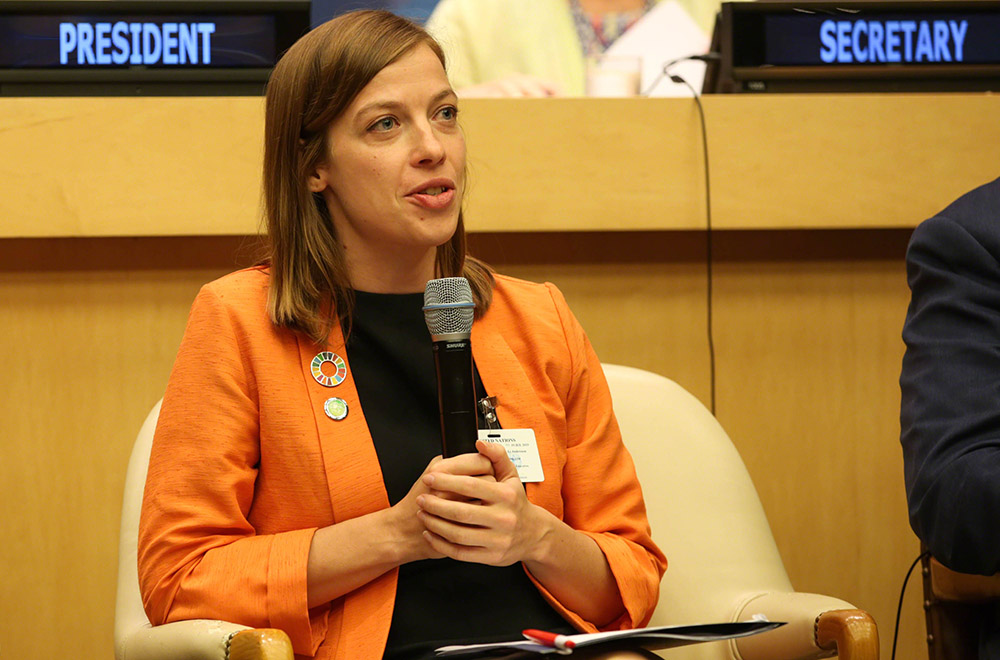
Li Andersson, Minister of Education, Finland
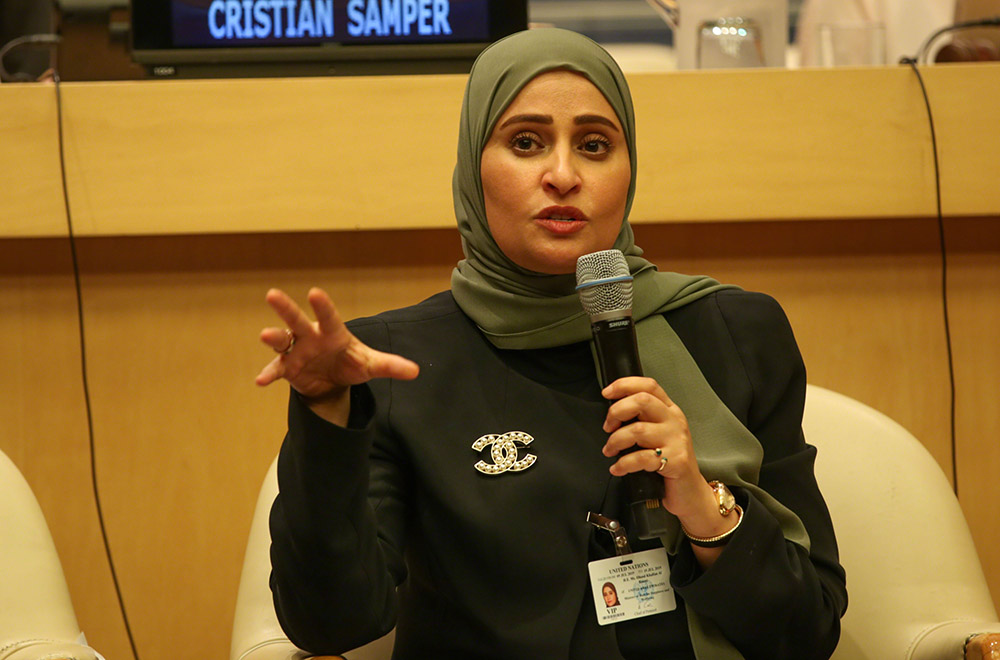
Ohood bint Khalifa Al Roumi, Minister of State for Happiness and Wellbeing, UAE
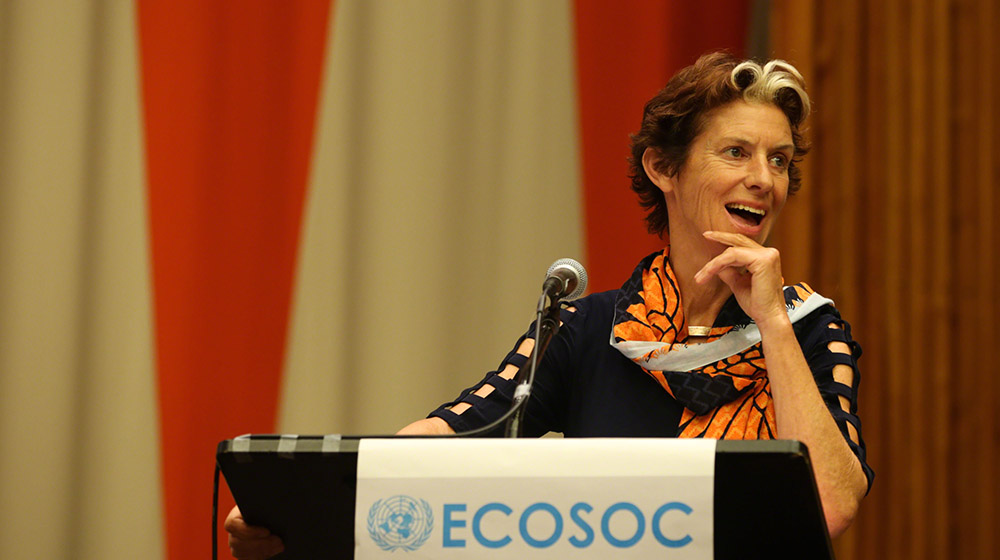
Moderator Gerda Verburg, UN Assistant Secretary-General and Coordinator, Scaling-Up Nutrition Movement
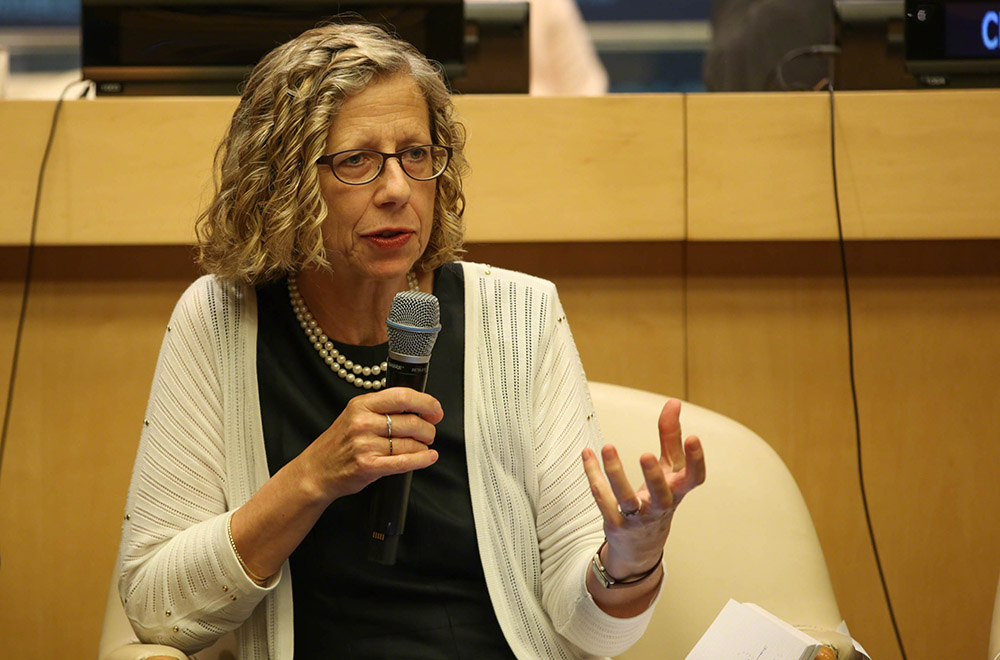
Inger Andersen, Executive Director, UN Environment Programme (UNEP)
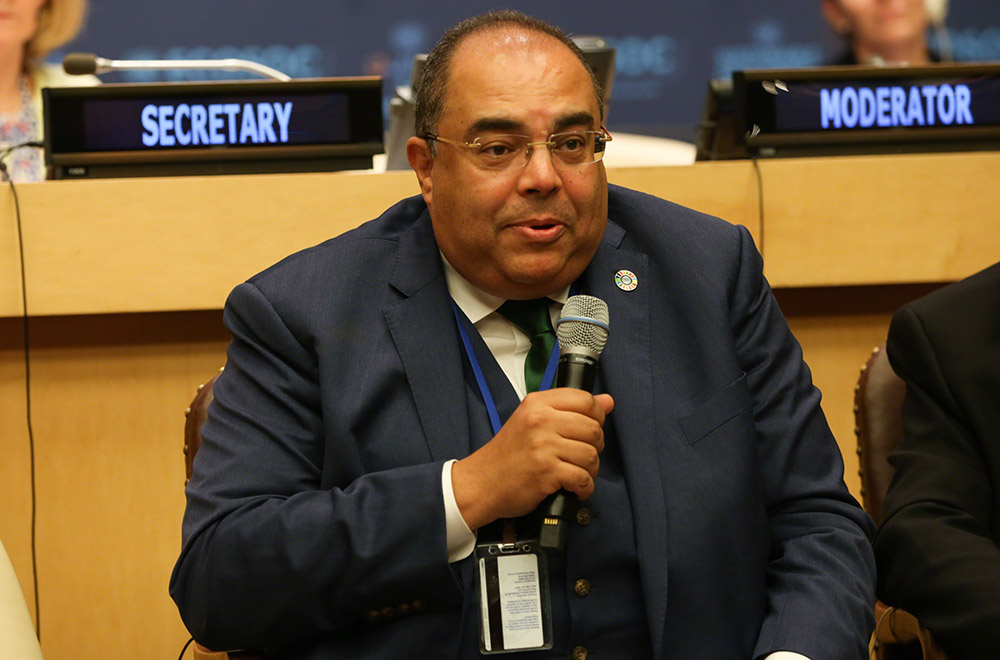
Mahmoud Mohieldin, Senior Vice-President, World Bank Group
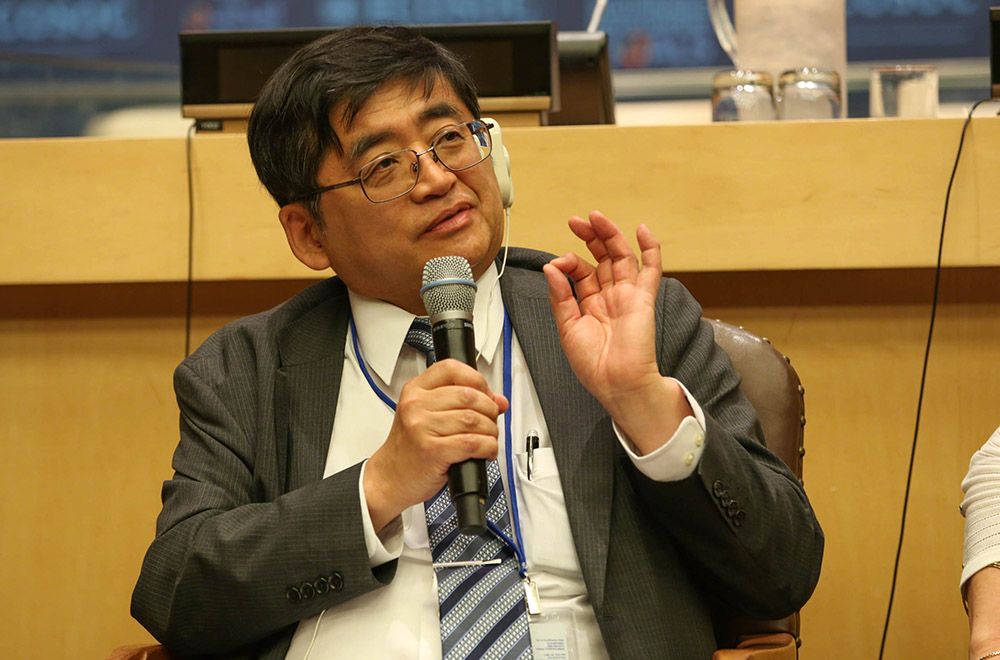
Masamichi Kono, Deputy Secretary-General, Organisation for Economic Co-operation and Development (OECD)
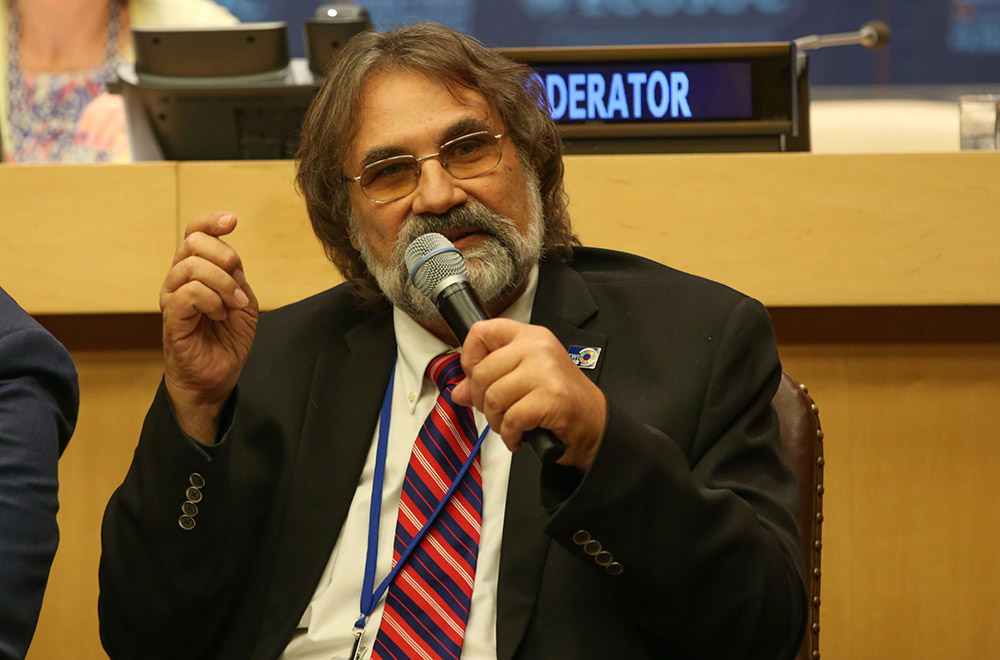
Nebojša Nakićenović, Acting Deputy Director-General, International Institute for Applied
Systems Analysis (IIASA)
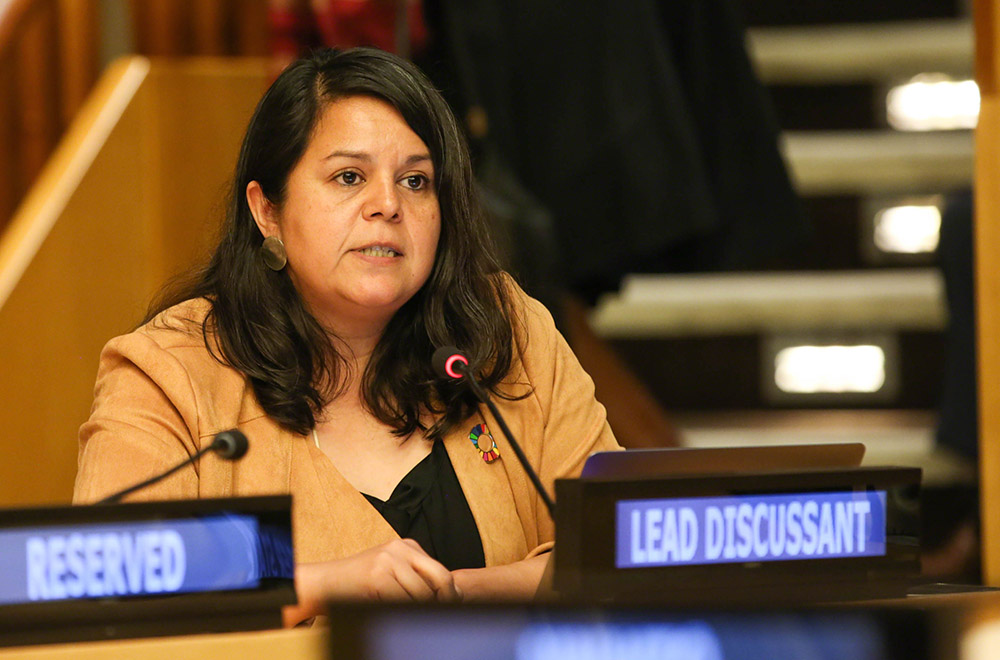
Marcela Guillibrand De la Jara, Executive Director, Red Volunteers of Chile
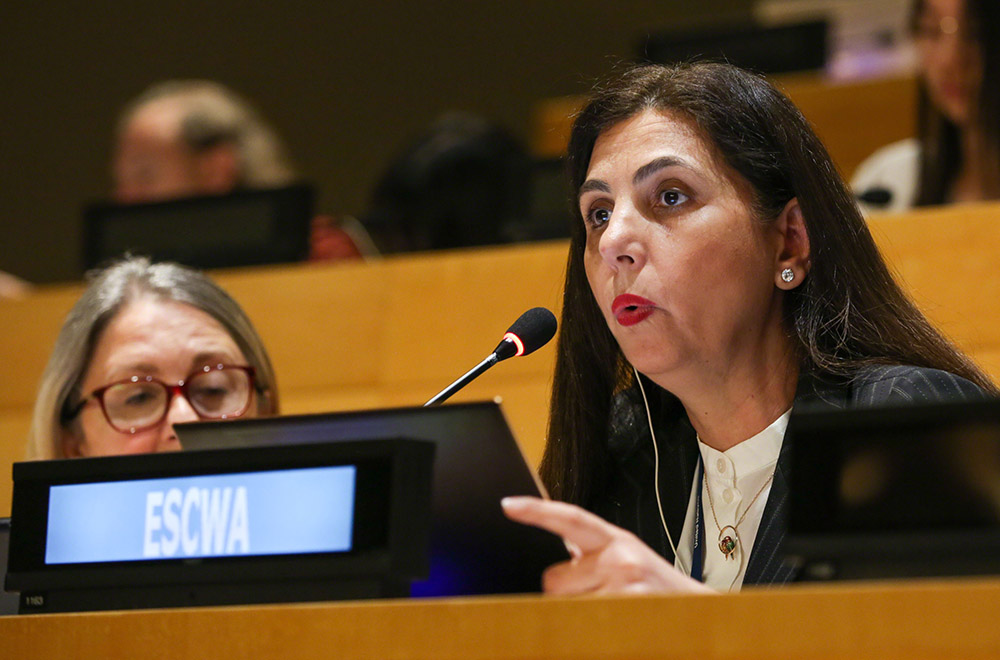
Rola Dashti, Executive Secretary, UN Economic and Social Commission for Western Asia (ESCWA)
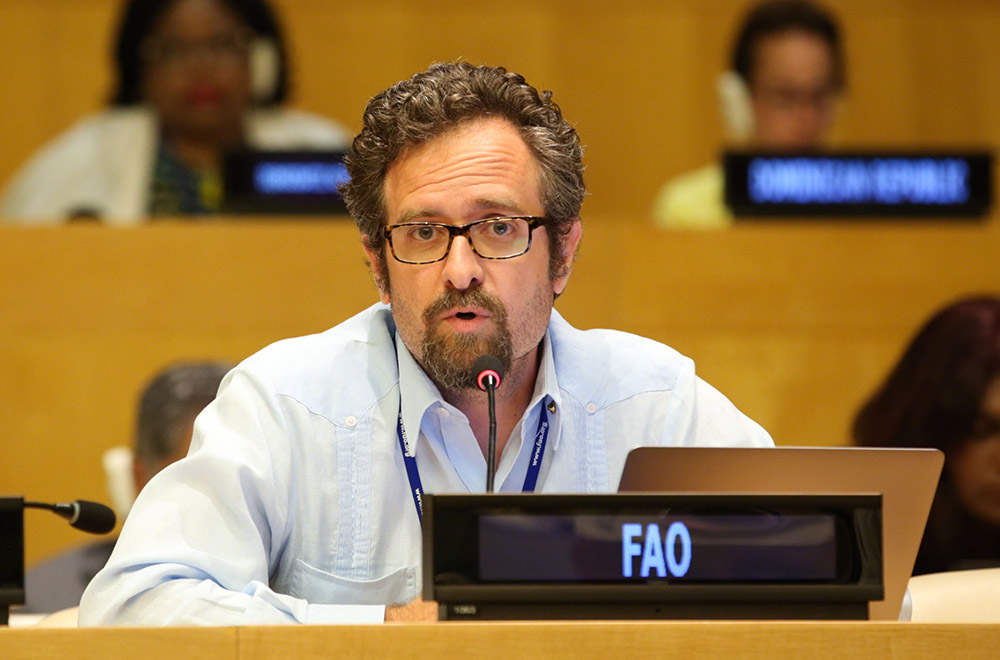
Lucas Tavares, Food and Agriculture Organization of the UN (FAO)
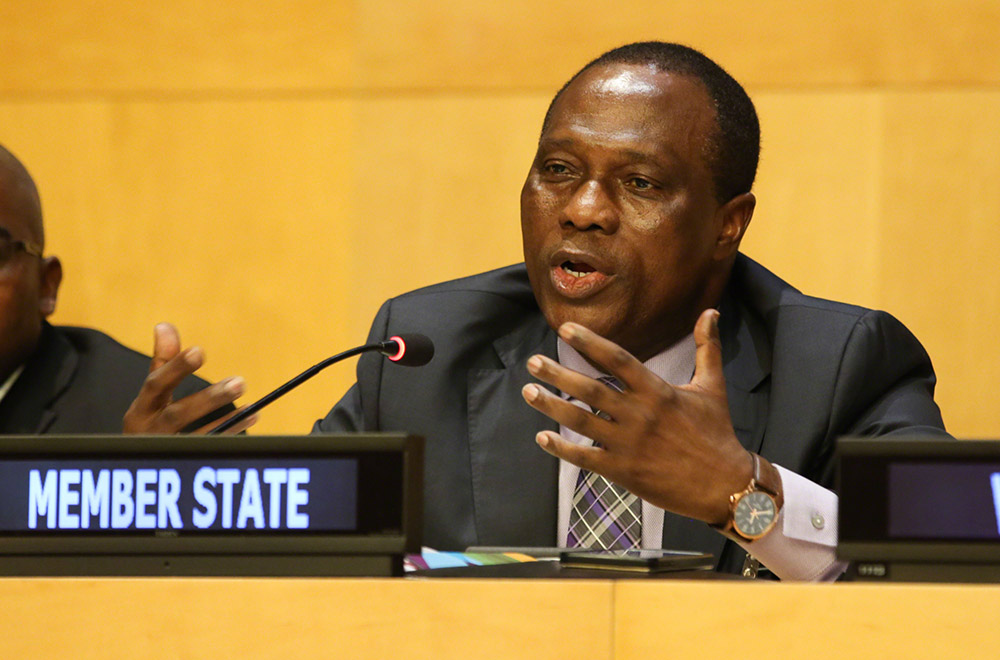
Francis Kai Kai, Minister of Planning and Economic Development, Sierra Leone
Long-Term Trends and Scenarios
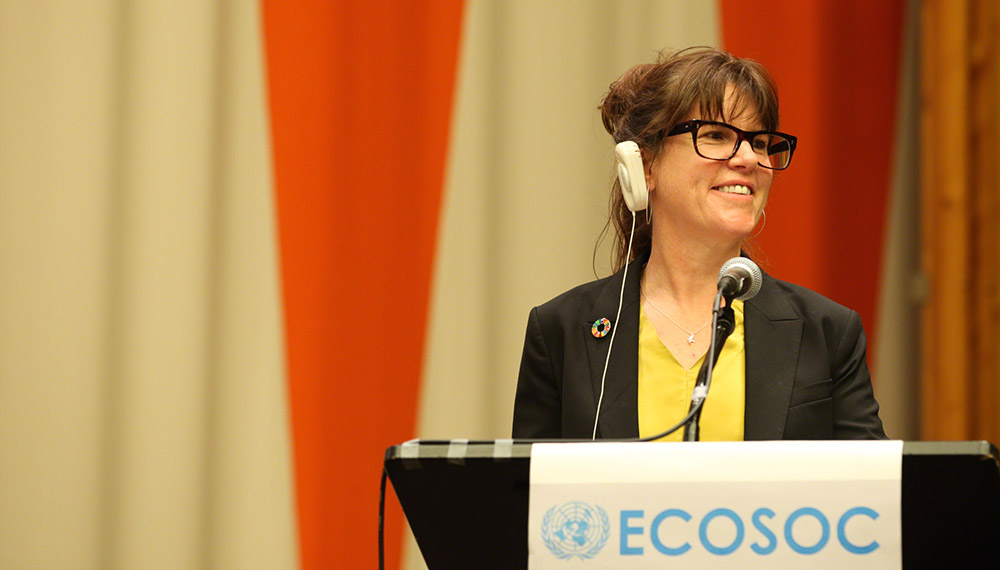
Claire Melamed, Executive Director, Global Partnership for Sustainable Development Data, moderated the session.
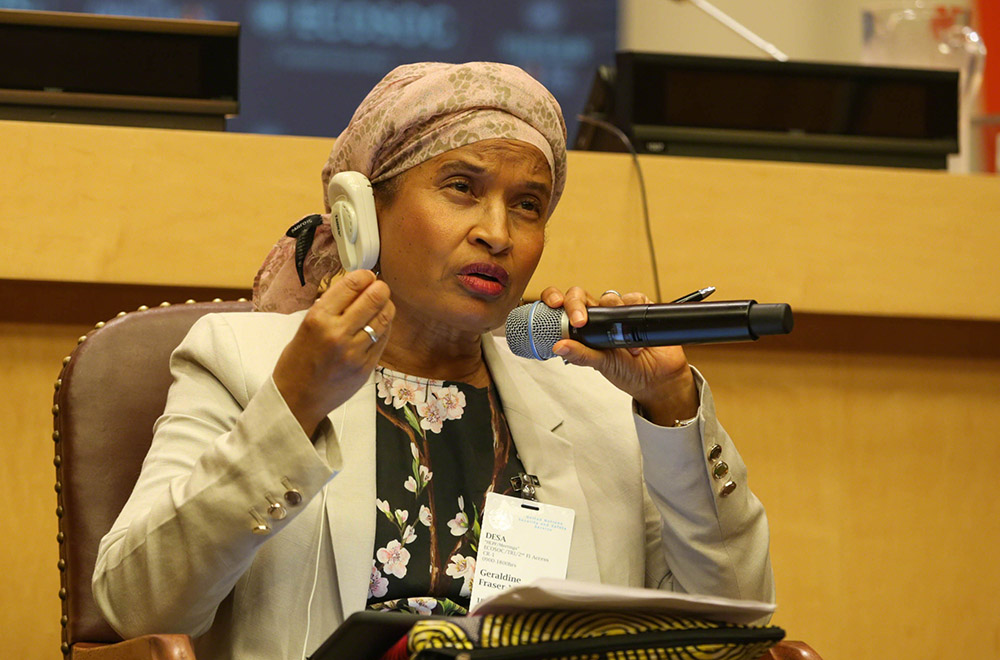
Geraldine Fraser-Moleketi, Chair, Committee of the Experts on Public Administration (CEPA)
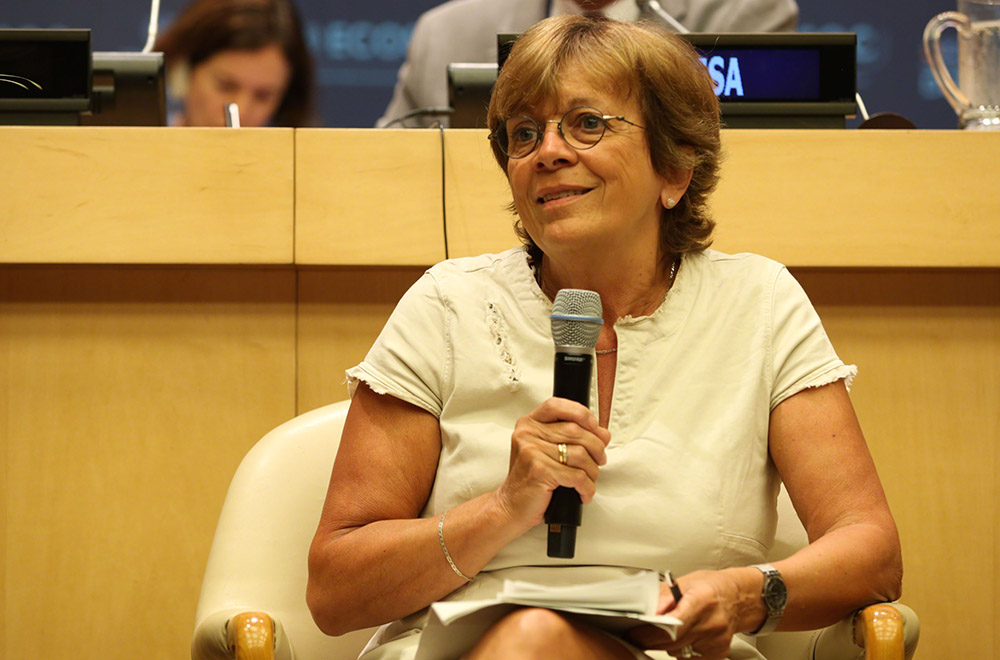
Isabelle Durant, Deputy Secretary-General, UN Conference on Trade and Development (UNCTAD)
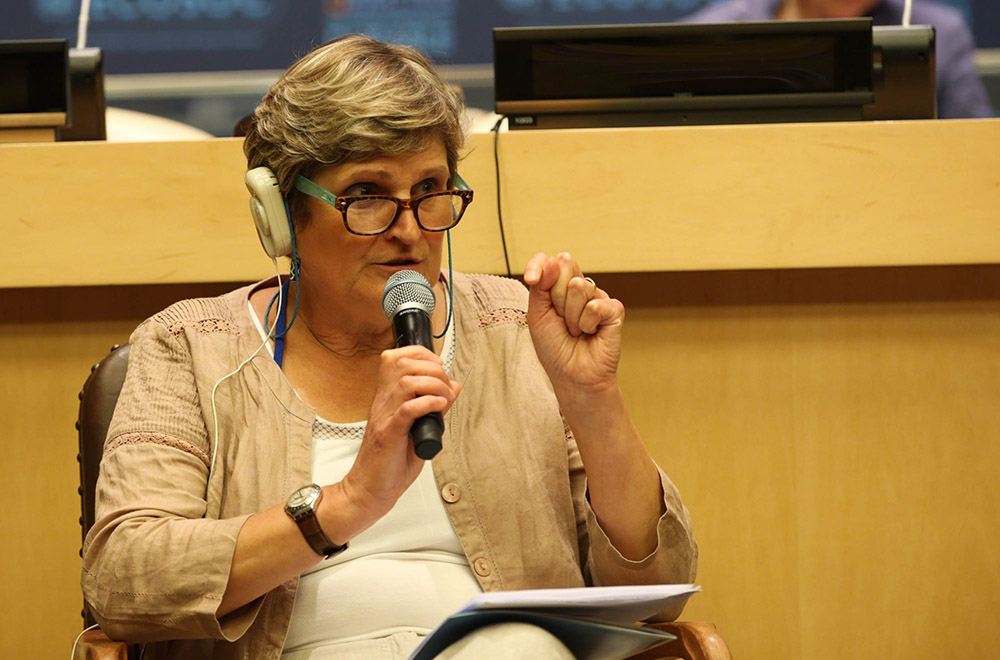
Isabelle Pypaert-Perrin, Executive Director, International Movement ATD Fourth World
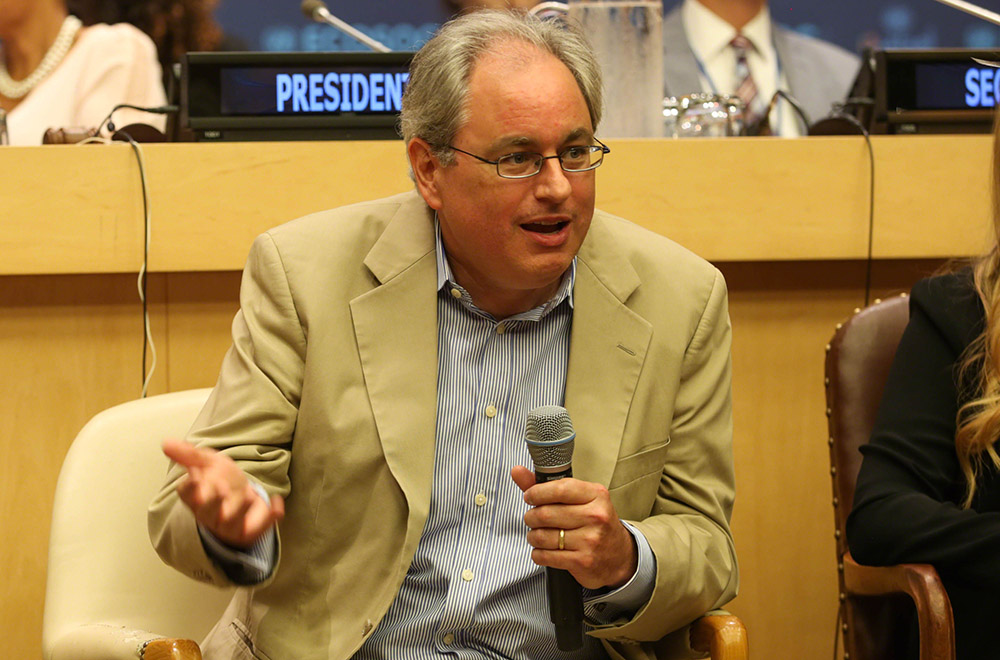
Charles Kenny, Director of Technology and Development, Center for Global Development
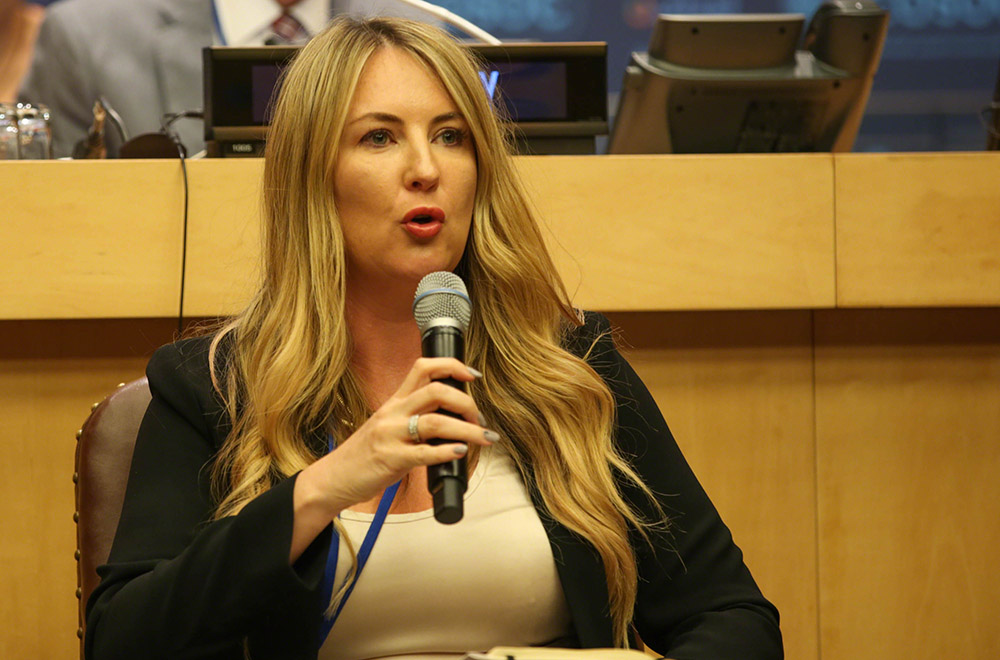
Sophie Howe, Future Generations Commissioner, Wales
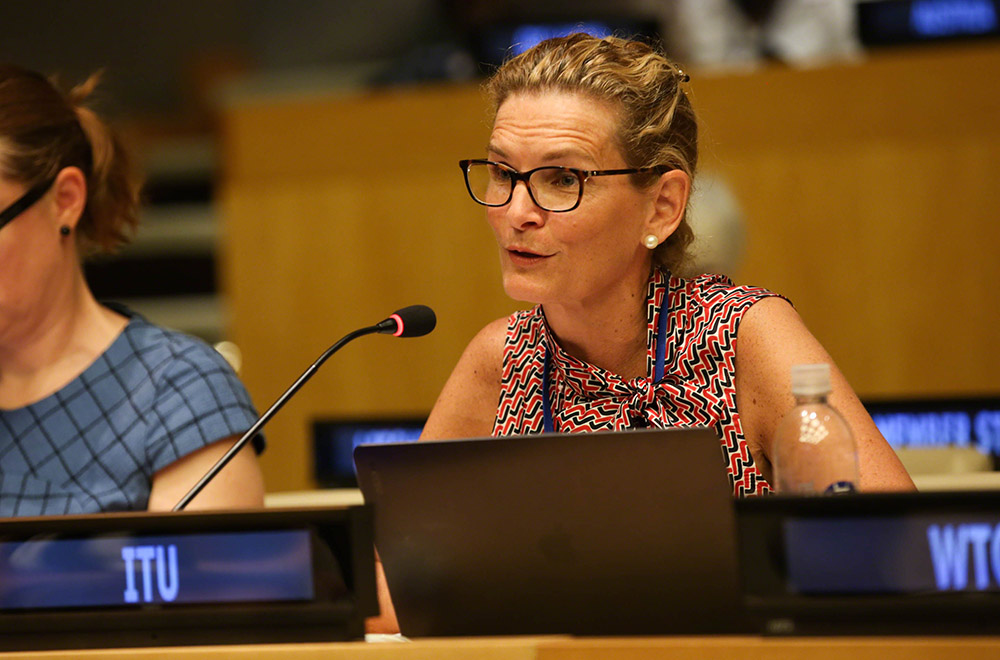
Doreen Bogdan Martin, Director, Development Bureau, International Telecommunication Union (ITU)
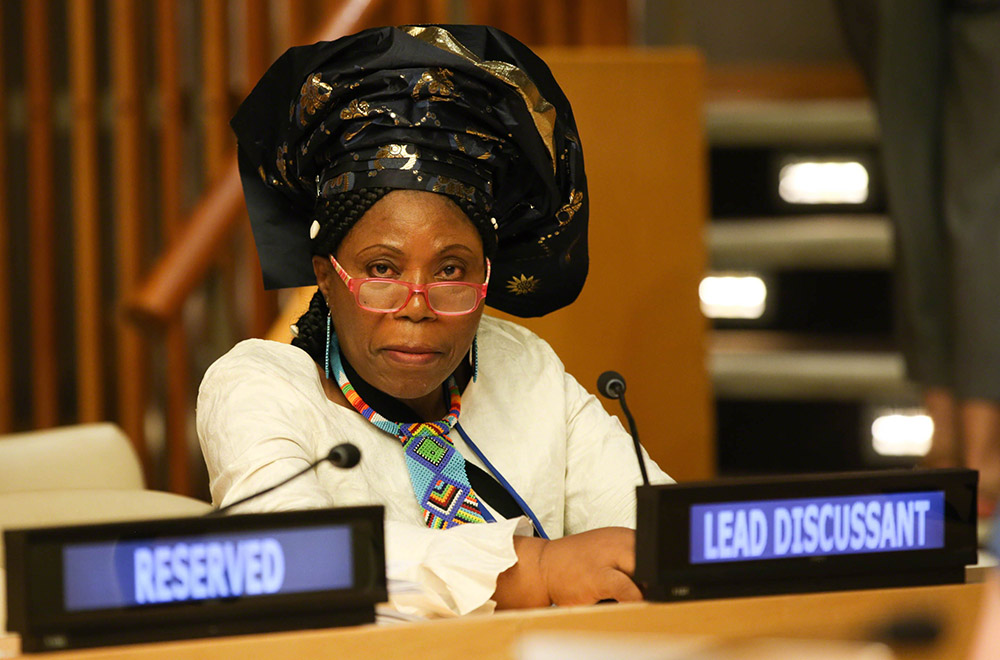
Paulette Metang, Executive President, Cameroonian Association for the Care of the Elderly (ACAMAGE)
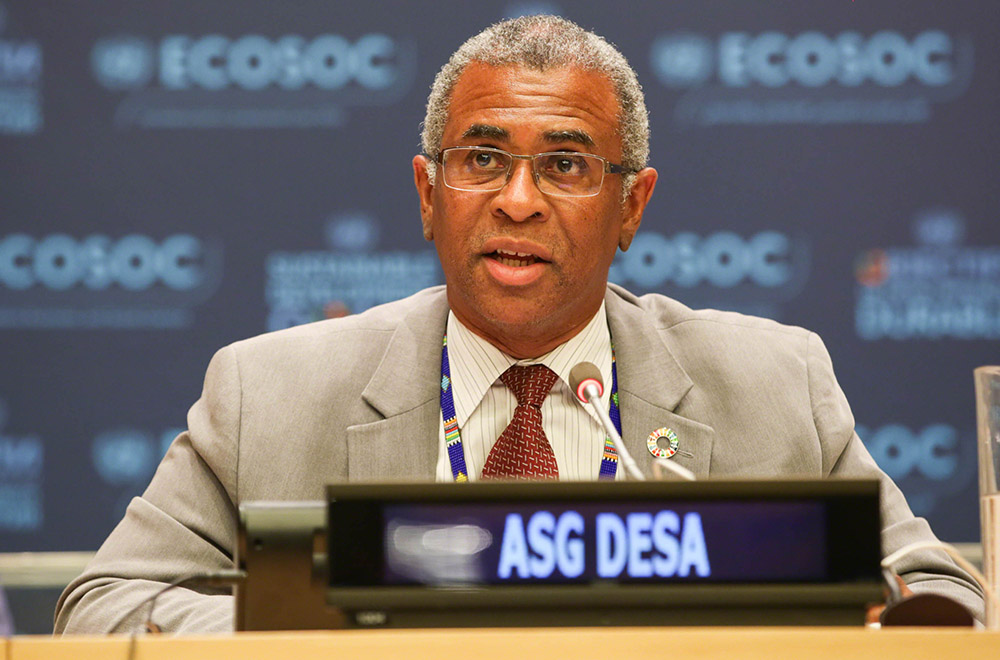
Elliott Harris, Assistant Secretary-General, Economic Development and Chief Economist, UN DESA
General Debate
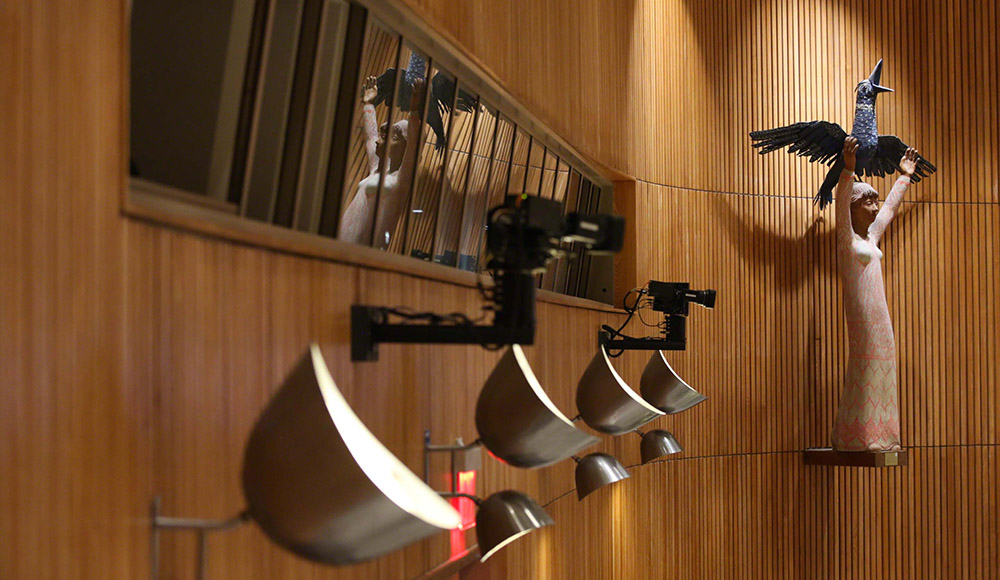
The final day of the General Debate took place in the Trusteeship Council Chamber.
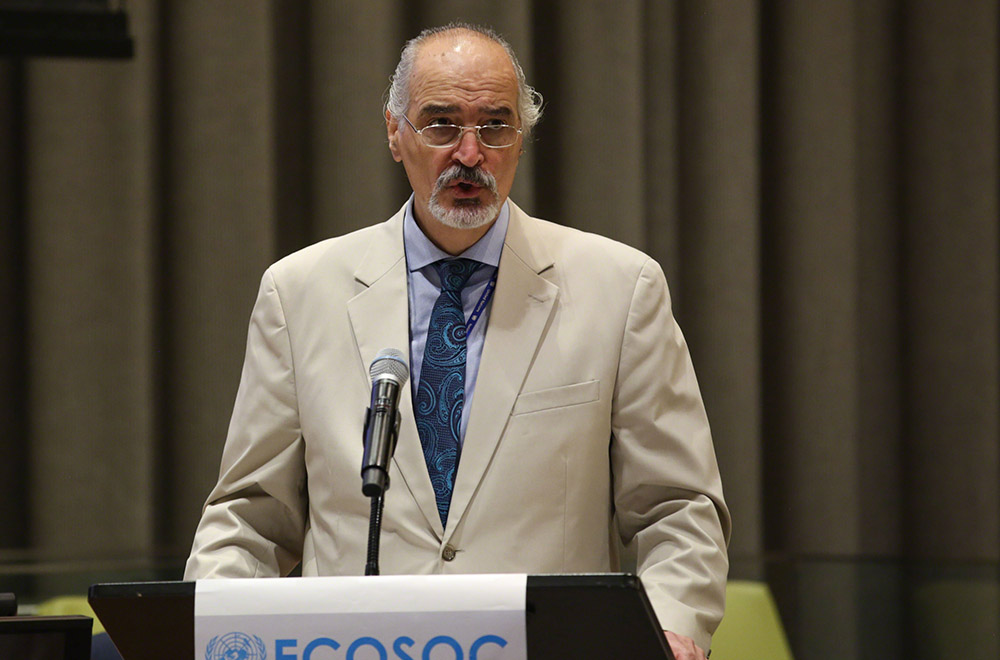
Bashar Jaafari, Permanent Representative of Syria to the UN
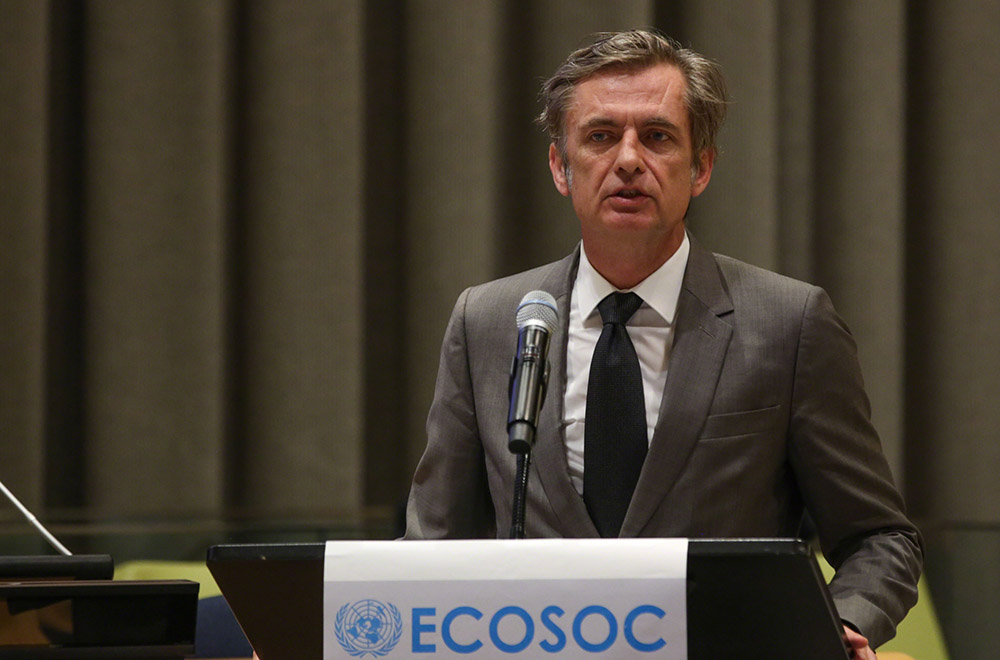
Christian Wenaweser, Permanent Representative of Liechtenstein to the UN
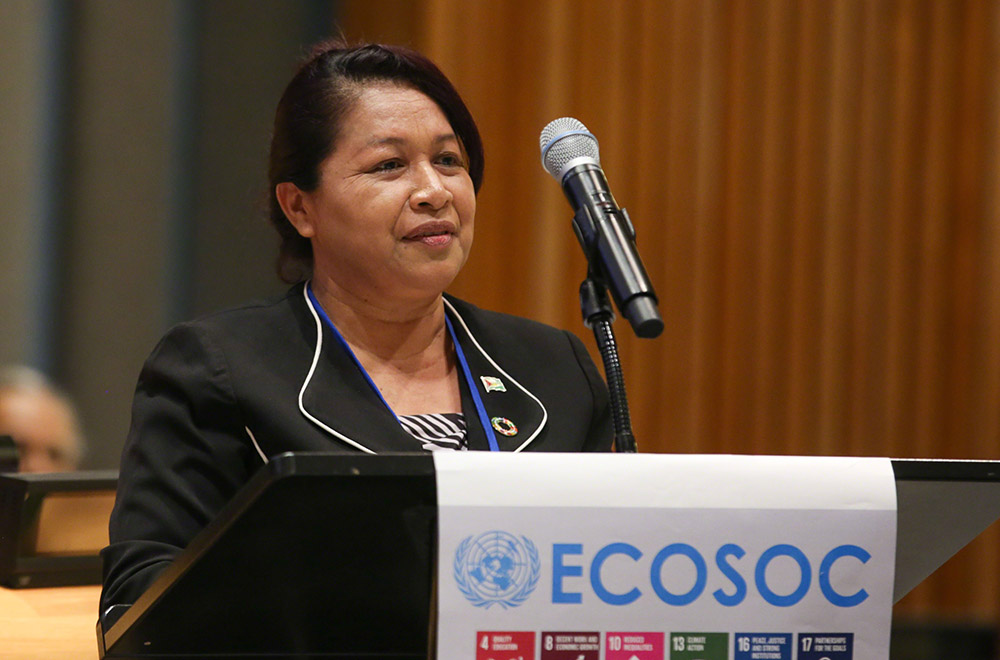
Dawn Hastings-Williams, Minister of State, Guyana
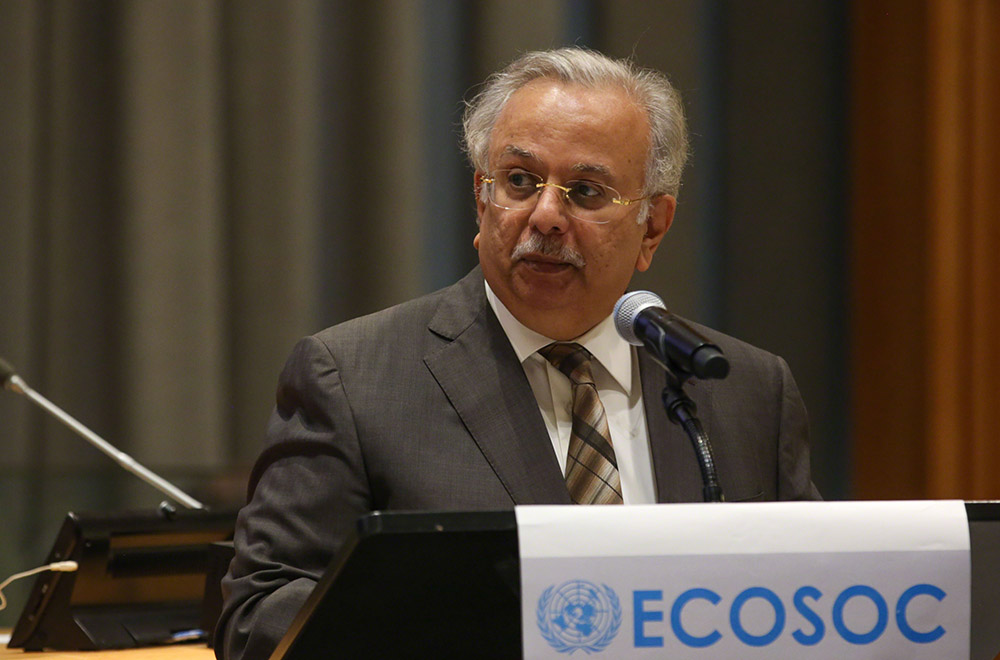
Abdallah Al-Mouallimi, Permanent Representative of Saudi Arabia to the UN
Closing of the High-level Segment of ECOSOC
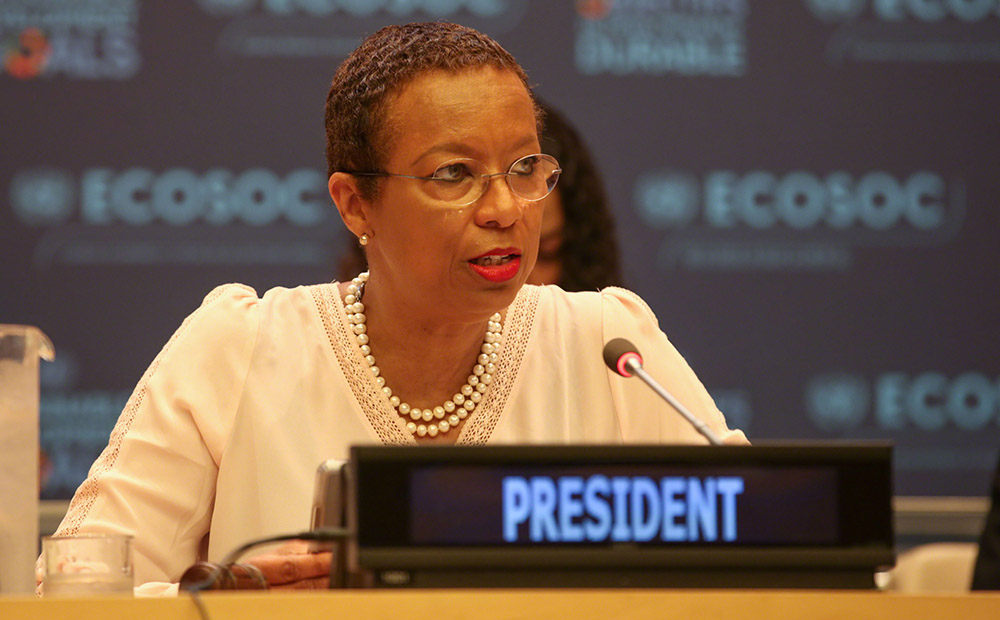
Inga Rhonda King, President, ECOSOC, delivers closing remarks.
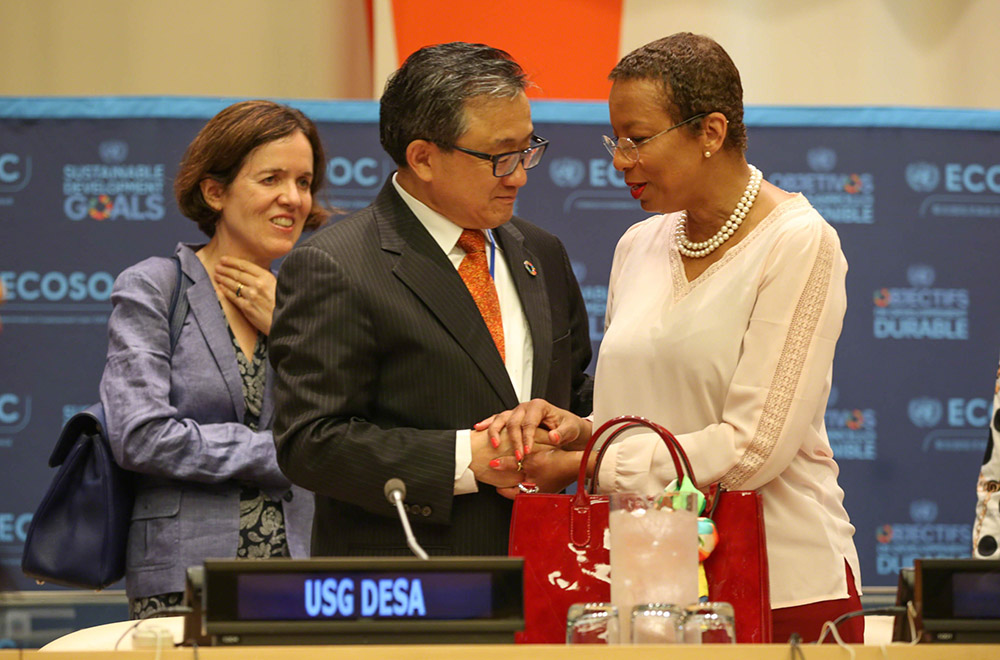
Liu Zhenmin, UN Under-Secretary-General, Economic and Social Affairs, congratulates Inga Rhonda King, President, ECOSOC, for her work during HLPF 2019.

Delegates applaud the closure of the session.
Around the Venue
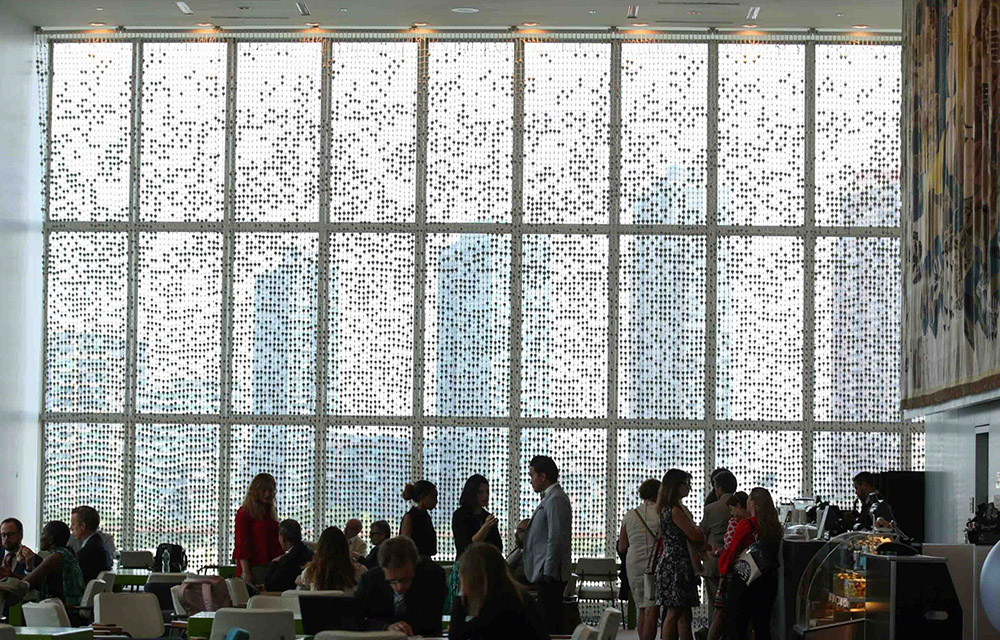
Participants gather in the delegates lounge, with the New York City skyline in the background.
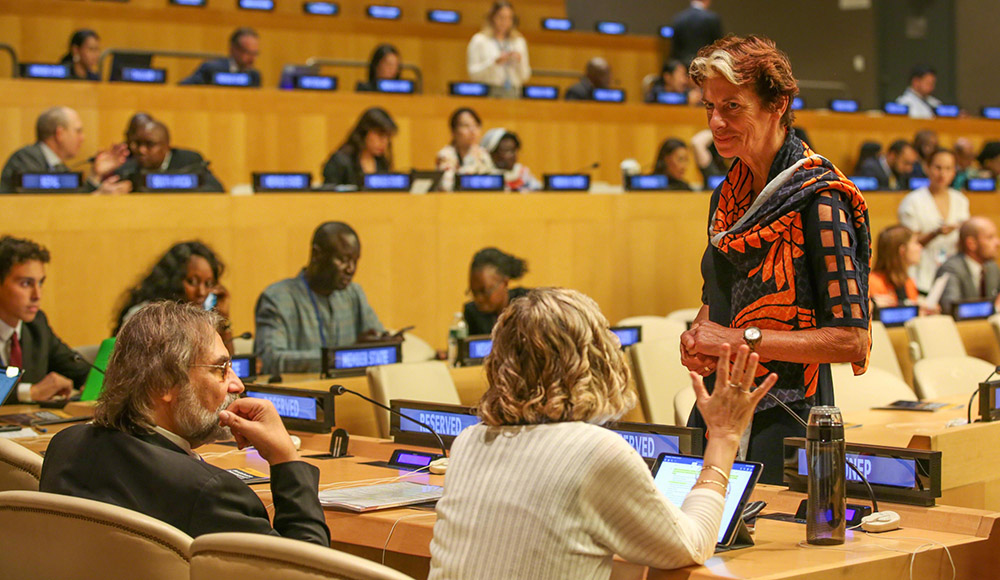
Gerda Verburg, UN Assistant Secretary-General and Coordinator, Scaling-Up Nutrition Movement, speaks with Nebojša Nakićenović, IIASA, and Inger Andersen, Executive Director, UNEP
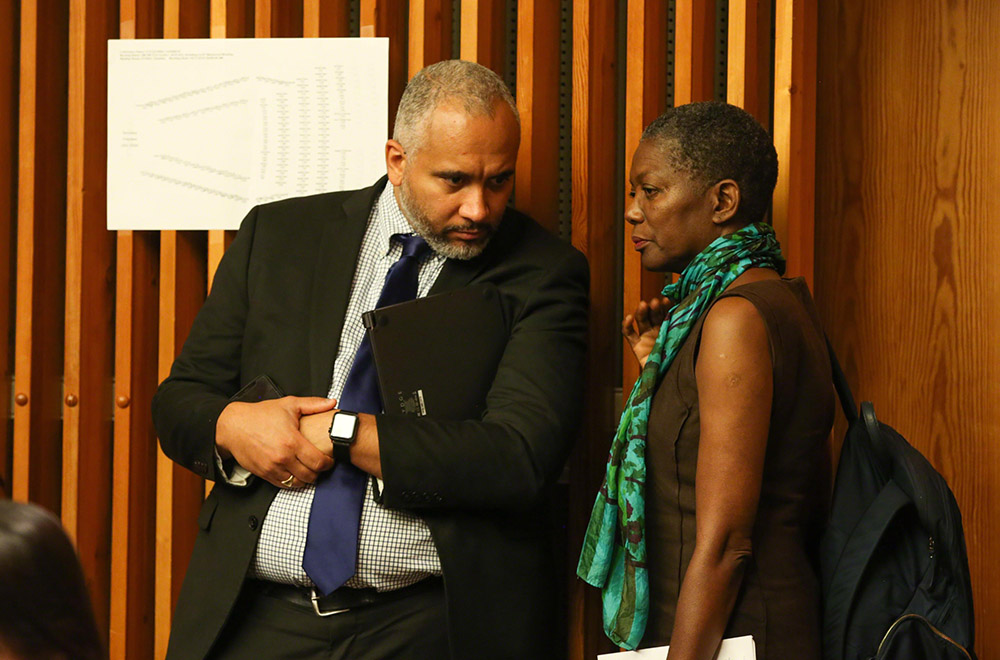
Paul Simon and Leslie Wade, UN DESA
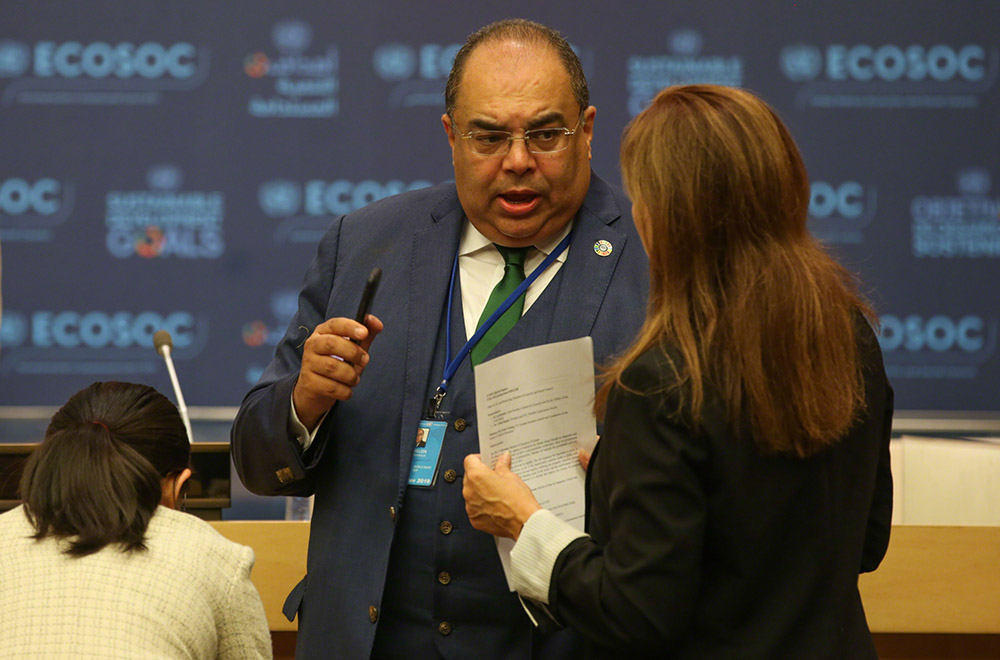
Mahmoud Mohieldin, Senior Vice-President, World Bank Group
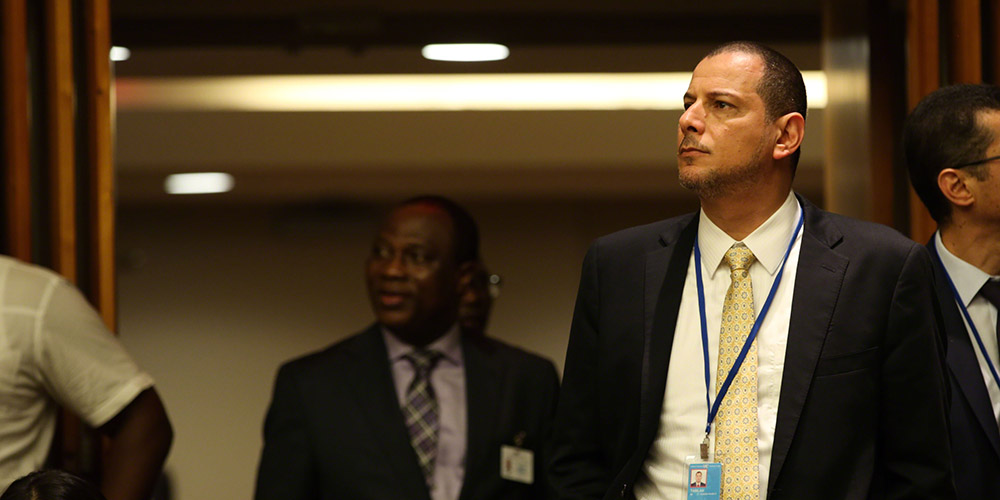
Abdullah Tawlah, Saudi Arabia
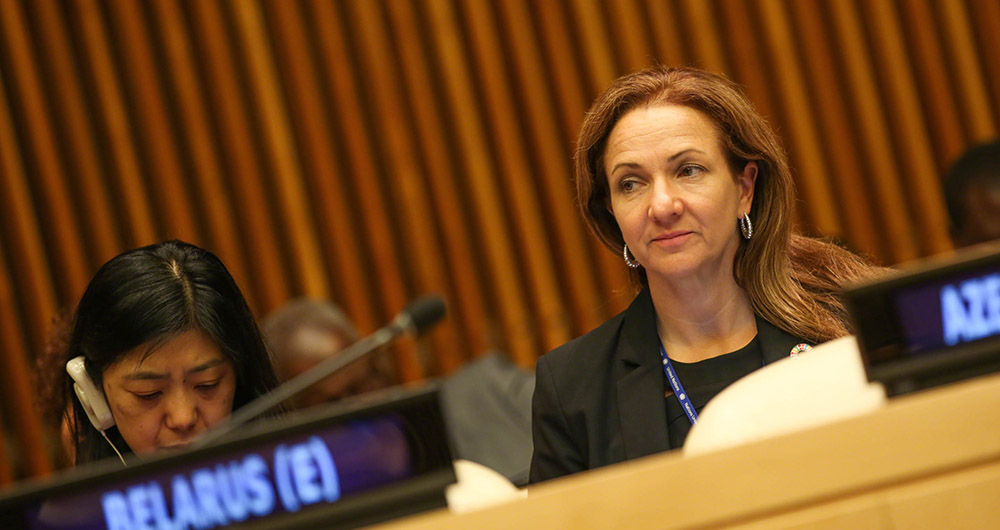
Tonya Vaturi, UN DESA
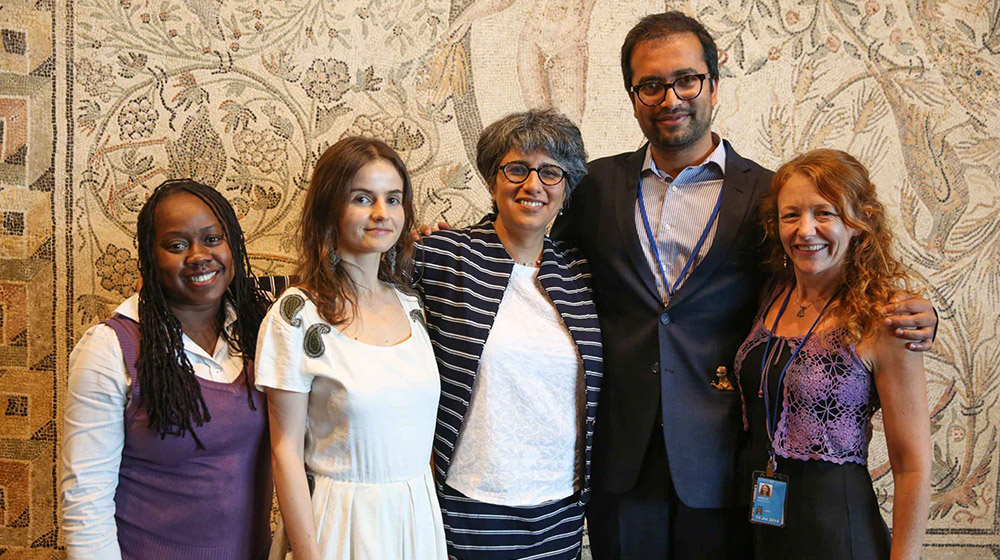
The International Institute for Sustainable Development (IISD) Earth Negotiations Bulletin (ENB) team covering HLPF 2019: Wanja Nyingi, Kenya; Ana-Maria Lebada, Romania; Anju Sharma, UK; Rishikesh Bhandary, Nepal; and Kiara Worth, South Africa

A traditional storyboard gifted to the UN by Palau.

Artwork entitled 'Agenda 2030,' gifted to the UN by Mexico.

Artwork entitled 'Sleeping Child,' gifted to the UN by Poland.

 The High-level Segment of the Economic and Social Council (ECOSOC) met on Friday to discuss visions and projections for the future of the Sustainable Development Goals (SDGs), and long-term trends and scenarios.Liu Zhenmin, Under-Secretary-General for the UN Department of Economic and Social Affairs (UN DESA), presented mega-trends from the summary of the Sustainable Development Outlook 2019 which will be launched in September 2019, highlighting that:
The High-level Segment of the Economic and Social Council (ECOSOC) met on Friday to discuss visions and projections for the future of the Sustainable Development Goals (SDGs), and long-term trends and scenarios.Liu Zhenmin, Under-Secretary-General for the UN Department of Economic and Social Affairs (UN DESA), presented mega-trends from the summary of the Sustainable Development Outlook 2019 which will be launched in September 2019, highlighting that:















